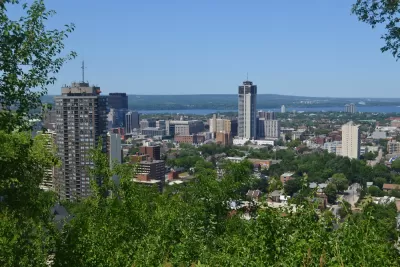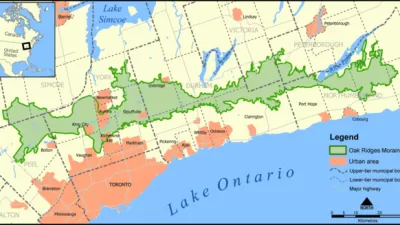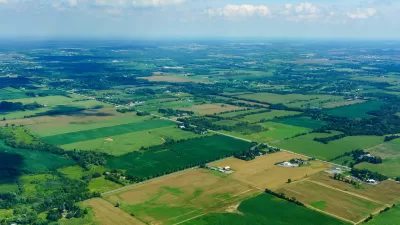The Toronto Greenbelt was an urban growth boundary created in 2005 as one of the most obvious political victories for the Smart Growth movement in North America. A new bill would reverse course on the region’s growth policies.

“The Ontario government announced plans Friday to open up thousands of acres of land in the protected Greenbelt for development, going back on years of promises to leave it intact,” reports Emma McIntosh for the Narwhal.
The Progressive Conservatives, led by Ontario Premier Doug Ford, would build 50,000 housing units passed the edges of the region's urban growth boundaries to address the high cost of housing in the province. The plan is included in Bill 23, also known as the “More Homes Built Faster, 2022” bill.
“Ford’s plan to open up Ontario’s Greenbelt is essentially a massive land swap. The idea, the province says, is that it can drop some pieces of the protected area and add other, bigger pieces to make up for it. But the Greenbelt is huge, important and contentious, and changes to it are the result of decades of pressure from opponents,” writes McIntosh.
Toronto Star columnists have not responded positively. In a column for the Star [paywall], Martin Regg Cohn describes the plan as Premier Ford revealing his “true colours.”
“Back in 2018, Ford promised developers privately he’d open up vast tracts of land. Caught on video, he quickly repudiated the plan, vowing to leave it untouched,” writes Cohn. “Notwithstanding those words, the premier is going back on his word in 2022.”
In another column for the Star [paywall], Edward Keenan writes that Ford’s “flip flop” on the Greenbelt has left the columnist grasping for words—examining words like credulous before considering corruption and capture. “But I am not accusing anyone of corruption. I am not even suggesting it as the most likely explanation. Because there’s another ‘C’ word that came to my mind even quicker: ‘capture,” writes Keenan. “As in the term “regulatory capture.” That’s a phenomenon where a government body meant to regulate an industry is so cosy with those it is supposed to regulate that it routinely serves their interests rather than the public’s. Another term for it — also beginning with a ‘C’ — is ‘client politics,’ because the regulator comes to see those they are policing as their client.”
Writing in support of Bill 23 for the National Post, Steve Lafleur and Josef Filipowicz argue that the region can no longer wait for “perfect solutions” to the its housing affordability crisis.
Planetizen documented several earlier iterations of the Progressive Conservatives’ flirtation with Greenbelt development, including while Ford was as a candidate for premier in 2018 and in a bill that followed in early 2019.
FULL STORY: Everything you need to know about Doug Ford’s plan to cut into Ontario’s Greenbelt

Maui's Vacation Rental Debate Turns Ugly
Verbal attacks, misinformation campaigns and fistfights plague a high-stakes debate to convert thousands of vacation rentals into long-term housing.

Planetizen Federal Action Tracker
A weekly monitor of how Trump’s orders and actions are impacting planners and planning in America.

In Urban Planning, AI Prompting Could be the New Design Thinking
Creativity has long been key to great urban design. What if we see AI as our new creative partner?

King County Supportive Housing Program Offers Hope for Unhoused Residents
The county is taking a ‘Housing First’ approach that prioritizes getting people into housing, then offering wraparound supportive services.

Researchers Use AI to Get Clearer Picture of US Housing
Analysts are using artificial intelligence to supercharge their research by allowing them to comb through data faster. Though these AI tools can be error prone, they save time and housing researchers are optimistic about the future.

Making Shared Micromobility More Inclusive
Cities and shared mobility system operators can do more to include people with disabilities in planning and operations, per a new report.
Urban Design for Planners 1: Software Tools
This six-course series explores essential urban design concepts using open source software and equips planners with the tools they need to participate fully in the urban design process.
Planning for Universal Design
Learn the tools for implementing Universal Design in planning regulations.
planning NEXT
Appalachian Highlands Housing Partners
Mpact (founded as Rail~Volution)
City of Camden Redevelopment Agency
City of Astoria
City of Portland
City of Laramie




























